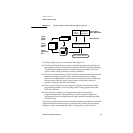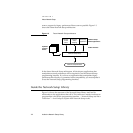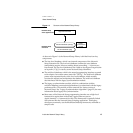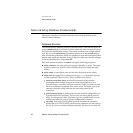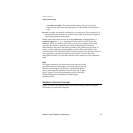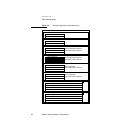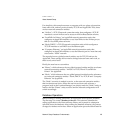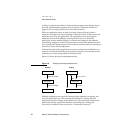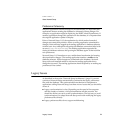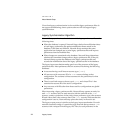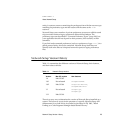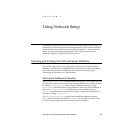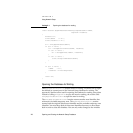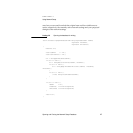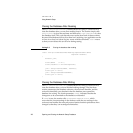
CHAPTER 1
About Network Setup
Legacy Issues
21
Preference Coherency 1
When an application commits changes to the default area, it is important that
applications that are reading the database be informed of those changes. For
example, an application might be displaying the DHCP client ID preference. If
another application changes this preference in the database, it is important that
the original application update its display.
Prior to Network Setup 1.0.2, the mechanism by which readers learned of
changes was somewhat primitive. When a writing application committed its
changes, Network Setup tagged each reading application’s database reference
with an error. Any subsequent calls using that database connection failed with
an error (kCfgErrDatabaseChanged). The reading application responded by
closing its database reference and opening the database again. It then read the
new preferences.
Network Setup 1.0.2 introduces a new, notifier-based mechanism for learning
about preference changes. The reading application attaches a notifier to the
database reference. When changes are committed to the database, Network
Setup calls each installed notifier to inform the reading application that a
change has occurred. The reading application should respond by re-reading any
preferences it has cached.
Legacy Issues 1
As described in the section “Network Setup Architecture” (page 11), current
versions of Network Setup automatically synchronize the legacy preferences
files with the database. This synchronization mechanism is transparent to
applications calling Network Setup, but there are two issues that you should be
aware of:
■ Legacy synchronization is slow. Depending on the speed of the computer
and the number of entities, a full synchronization can take seconds. You
should do all that you can to avoid synchronizations. The best way to avoid
synchronizations is to adopt Network Setup and avoid modifying the legacy
preferences files directly.
■ Legacy preferences files do not support multihoming.



